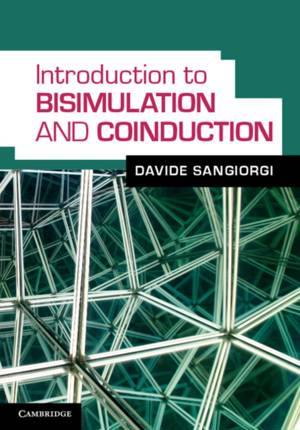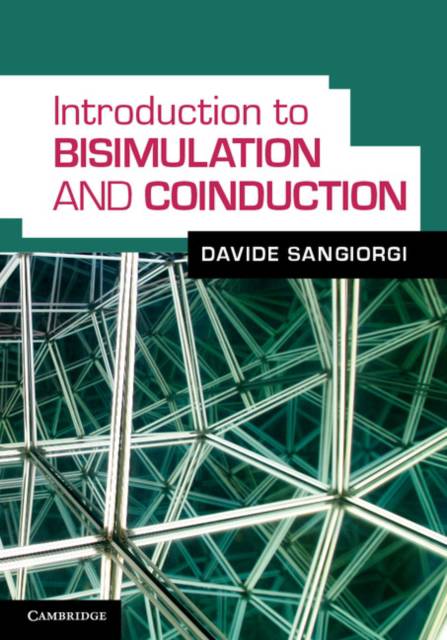
Bedankt voor het vertrouwen het afgelopen jaar! Om jou te bedanken bieden we GRATIS verzending (in België) aan op alles gedurende de hele maand januari.
- Afhalen na 1 uur in een winkel met voorraad
- In januari gratis thuislevering in België
- Ruim aanbod met 7 miljoen producten
Bedankt voor het vertrouwen het afgelopen jaar! Om jou te bedanken bieden we GRATIS verzending (in België) aan op alles gedurende de hele maand januari.
- Afhalen na 1 uur in een winkel met voorraad
- In januari gratis thuislevering in België
- Ruim aanbod met 7 miljoen producten
Zoeken
€ 95,45
+ 190 punten
Omschrijving
Induction is a pervasive tool in computer science and mathematics for defining objects and reasoning on them. Coinduction is the dual of induction and as such it brings in quite different tools. Today, it is widely used in computer science, but also in other fields, including artificial intelligence, cognitive science, mathematics, modal logics, philosophy and physics. The best known instance of coinduction is bisimulation, mainly employed to define and prove equalities among potentially infinite objects: processes, streams, non-well-founded sets, etc. This book presents bisimulation and coinduction: the fundamental concepts and techniques and the duality with induction. Each chapter contains exercises and selected solutions, enabling students to connect theory with practice. A special emphasis is placed on bisimulation as a behavioural equivalence for processes. Thus the book serves as an introduction to models for expressing processes (such as process calculi) and to the associated techniques of operational and algebraic analysis.
Specificaties
Betrokkenen
- Auteur(s):
- Uitgeverij:
Inhoud
- Aantal bladzijden:
- 260
- Taal:
- Engels
Eigenschappen
- Productcode (EAN):
- 9781107003637
- Verschijningsdatum:
- 13/10/2011
- Uitvoering:
- Hardcover
- Formaat:
- Ongenaaid / garenloos gebonden
- Afmetingen:
- 190 mm x 249 mm
- Gewicht:
- 997 g

Alleen bij Standaard Boekhandel
+ 190 punten op je klantenkaart van Standaard Boekhandel
Beoordelingen
We publiceren alleen reviews die voldoen aan de voorwaarden voor reviews. Bekijk onze voorwaarden voor reviews.









